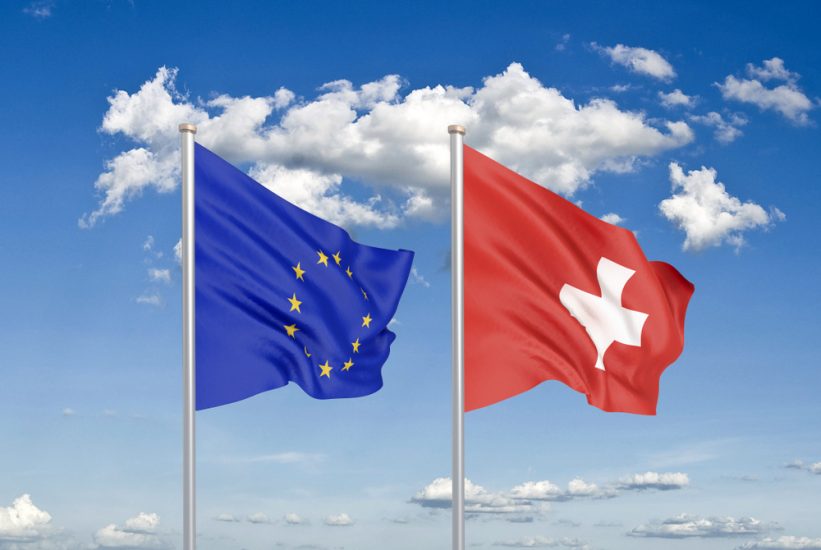By Philip Butterworth-Hayes
Future Swiss participation in European Union (EU) funded Horizon 2020 U-space research programmes has been thrown into doubt following the European Commission’s decision not to add Switzerland to the list of associated countries, who would be able to access EU funds for research.
In a July 13 communication the Swiss State Secretariat for Education, Research and Innovation (SERI) said:
“After the Federal Council took the decision not to sign the institutional agreement, and communicated this decision to the EU, the European Commission informed on 22 June in the Horizon Europe Programme Guide that Switzerland will be treated as a non-associated third country for the submission of project proposals in Horizon Europe and other related programmes and initiatives. According to the information published by the European Commission on its website on 12 July 2021, this status applies until further notice and applies to all calls for proposals in 2021. Hence, participants in Switzerland receive their funding directly from SERI, namely in all projects that were fully evaluated, for which a participation is possible and a positive result of the evaluation is available. The timely association to Horizon Europe and other related programmes remains the Federal Council’s declared goal. “
Switzerland’s air navigation service provider Skyguide and regulator Federal Office of Civil Aviation (FOCA) were both co-authors of the “Initial view on Principles for the U-space architecture”, delivered by the Horizon 2020 funded SESAR JU in July 2019 (https://www.sesarju.eu/sites/default/files/documents/u-space/SESAR%20principles%20for%20U-space%20architecture.pdf).
While technically Swiss industry could therefore still participate in EU-funded U-space research there are growing political tensions between the two sides making further collaboration more difficult. In May this year talks between Switzerland and the EU on a wider framework deal broke down without agreement.
“The negotiations essentially stumbled over EU demands for its citizens to have full access to the Swiss labour market,” according to Euronews. “Switzerland resisted such a move, arguing it might result in non-Swiss citizens getting social security rights.”
A European Commission spokesperson told Unmanned Airspace:
“Exploratory talks with Switzerland are currently on hold. It is politically impossible to consider a new financial relationship with Switzerland as long as Switzerland is not paying its financial contribution to the EU cohesion policy. The last payment dates back to 2012, a whole EU financial framework cycle. Furthermore, the new rules set up for the participation to the next generation of EU programmes will apply to Switzerland as for any other country. This includes the need to conclude an overall agreement where the conditions and the modalities for Switzerland’s participation will be defined. And here, there can be no surprise: we will take into account the development and the prospect of the EU-Swiss relationship as a whole.”
These tensions have already had a major impact on cooperative research programmes. According to a July 13 report in Science|Business
“Swiss researchers were encouraged to apply to the first Horizon Europe calls opened this spring by the European Research Council (ERC), before political tensions derailed bilateral scientific cooperation. Many Swiss researchers applied, but they are now left wondering what will happen with their proposals.”
(Image: Shutterstock/J_UK)




